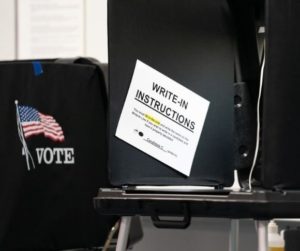A recent Gallup poll revealed something that comes as no surprise: Americans perceive a lack of satisfaction with the government as a substantial problem. As the nation heads into the next campaign season, these attitudes could play a significant role in determining who will lead the nation in the coming years. With both Democrats and Republicans growing increasingly dissatisfied with their respective parties, it could lead to shakeups in the 2024 elections on both sides of the political divide.

All Eyes are on the Government
The latest survey showed that “[f]or the seventh year in the past decade, Americans name dissatisfaction with the government as the nation’s top problem in 2022 with “an average of 19% of U.S. adults” mentioning “some aspect of the government as the most important problem facing the country.”
From the report:
“The government edges out the high cost of living or inflation (16%) and outpaces the economy in general (12%). Further down the list, immigration, unifying the country, COVID-19, race relations and crime each average 4% to 6% of mentions in 2022.”
Republican respondents were more likely than Democrats and independents to cite the state as the most critical issue and were “more than twice as likely as Democrats to name inflation and the economy in general.”
The only time the government category has not been cited as the number one concern in the past five years was in 2020, when the COVID-19 pandemic temporarily replaced it. The category related to the state “includes a range of responses, such as the president himself, Congress, party politics and gridlock,” according to Gallup.
This is not the only poll showing that Americans are growing more disillusioned with the government. A Pew Research study published earlier this year showed that only about 21% of Americans trust the state to do what is right “just about always” or “most of the time.” This is a slight decrease from 24% in 2021.
The decline in confidence in the government began in 1958, according to Pew Research:
“When the National Election Study began asking about trust in government in 1958, about three-quarters of Americans trusted the federal government to do the right thing almost always or most of the time. Trust in government began eroding during the 1960s, amid the escalation of the Vietnam War, and the decline continued in the 1970s with the Watergate scandal and worsening economic struggles. Confidence in government recovered in the mid-1980s before falling again in the mid-1990s. But as the economy grew in the late 1990s, so too did confidence in government. Public trust reached a three-decade high shortly after the 9/11 terrorist attacks, but declined quickly thereafter. Since 2007, the shares saying they can trust the government always or most of the time has not surpassed 30%.”
What This Means for the 2024 Elections
Americans have been dissatisfied with the government for such a long stretch that it’s difficult to imagine this not having a substantial impact on the next election season. Republicans, in particular, have become fed up with the old guard establishment, which is still scrambling to maintain its grip on power and influence on the right. There are indications it might succeed for the time being.

(Photo by Sean Rayford/Getty Images)
House Minority Leader Kevin McCarthy (R-CA), while facing challenges, is still expected to become the next Speaker of the House after Republicans take over the lower chamber next year. Republican National Committee Chair Ronna McDaniel is also being widely panned on the right but is still in a favorable position to win re-election. And, of course, Senate Minority Leader Mitch McConnell (R-KY) isn’t going anywhere anytime soon.
This will probably lead to even more dissatisfaction from the conservative base, many of whom blame the establishment types for the GOP’s not-so-good performance in November’s midterm elections. Republican voters might be more willing to elect more America First populist candidates if this is the case, further remaking the party. When it comes to the presidency, former President Donald Trump might be in a better position to receive the nomination. But Florida Gov. Ron DeSantis is also seen as a contender, meaning that either possible candidate would represent a departure from business as usual.
Democrats, on the other hand, might experience a similar shakeup. Given the fact that far-left candidates were not completely repudiated in the midterms, it might give progressives more room to expand their influence in the party. Indeed, they recently elected Rep. Hakeem Jeffries (D-NY) to lead Democrats in the House, signaling that the base is ready for a younger, fresher, new crop of leaders to take up the mantle. Jeffries is not exactly a moderate, meaning that we could be seeing the party move further to the left.
With Americans of all political stripes souring on the government, there could be a major sea change on the horizon. The establishment of both parties has fallen out of favor with everyday Americans, and the 2024 elections might just bring something new.
Do you have an opinion about this article? We’d love to hear it! If you send your comments to [email protected], we might even publish your edited remarks in our new feature, LN Readers Speak Out. Remember to include the URL of the article along with your name, city, and state.
Please respect our republishing guidelines. Republication permission does not equal site endorsement. Click here.

